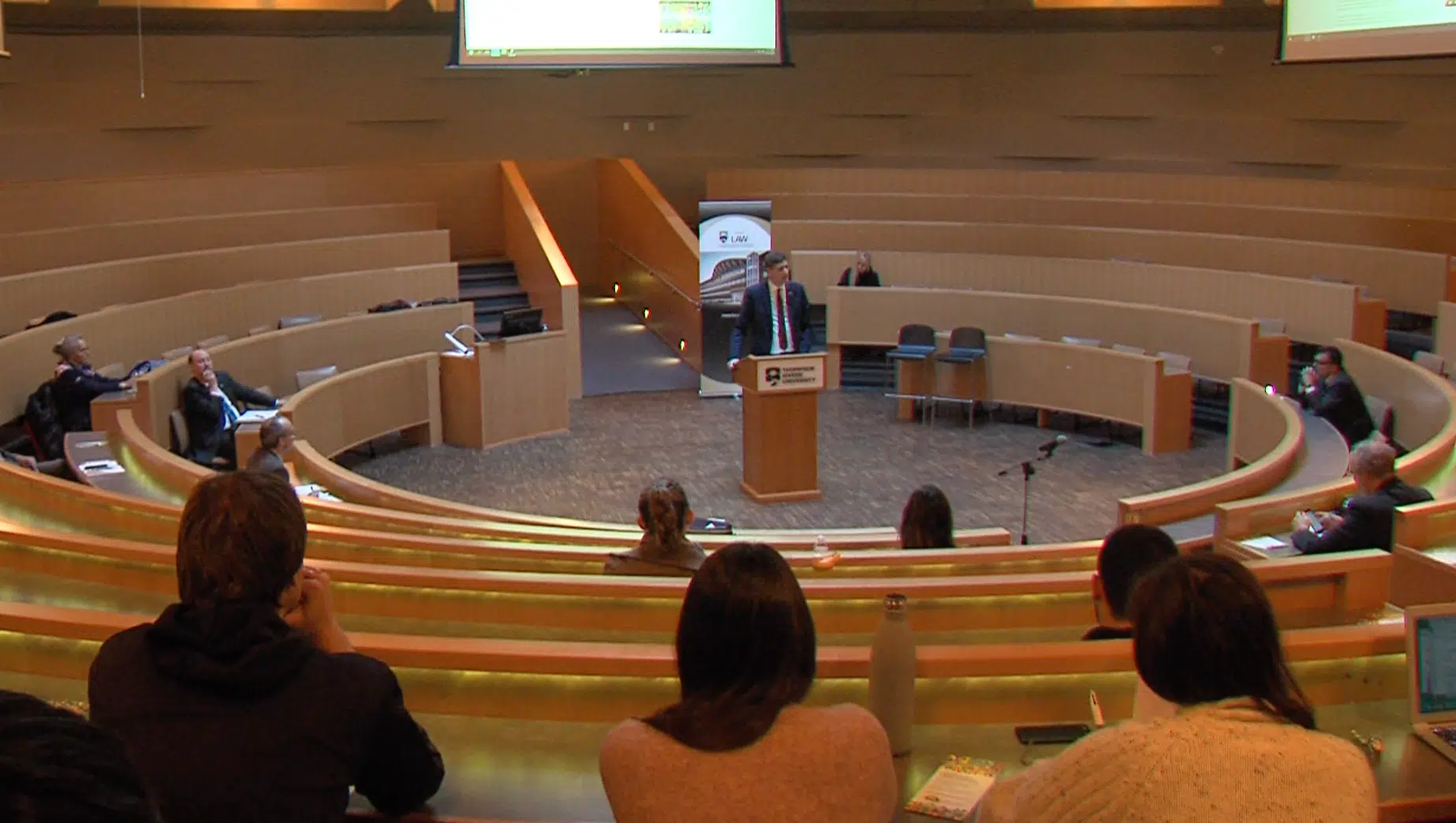
Eby addresses TRU Law students about revived B.C. Human Rights Commission
KAMLOOPS — It was in 2002 when the B.C. Human Rights Commission was eliminated by the Liberal government, and with it the commission’s purpose of dealing with issues of discrimination and inequality around the province disappeared.
For the past 15 years, B.C. has been the only province to not have a human rights commission. But under the direction of the NDP government, that is about to change.
The commission is being revived, and on Friday, talking to a group of TRU Law students, Attorney General David Eby outlined the newly reformed commission on the final day of his province-wide tour.


